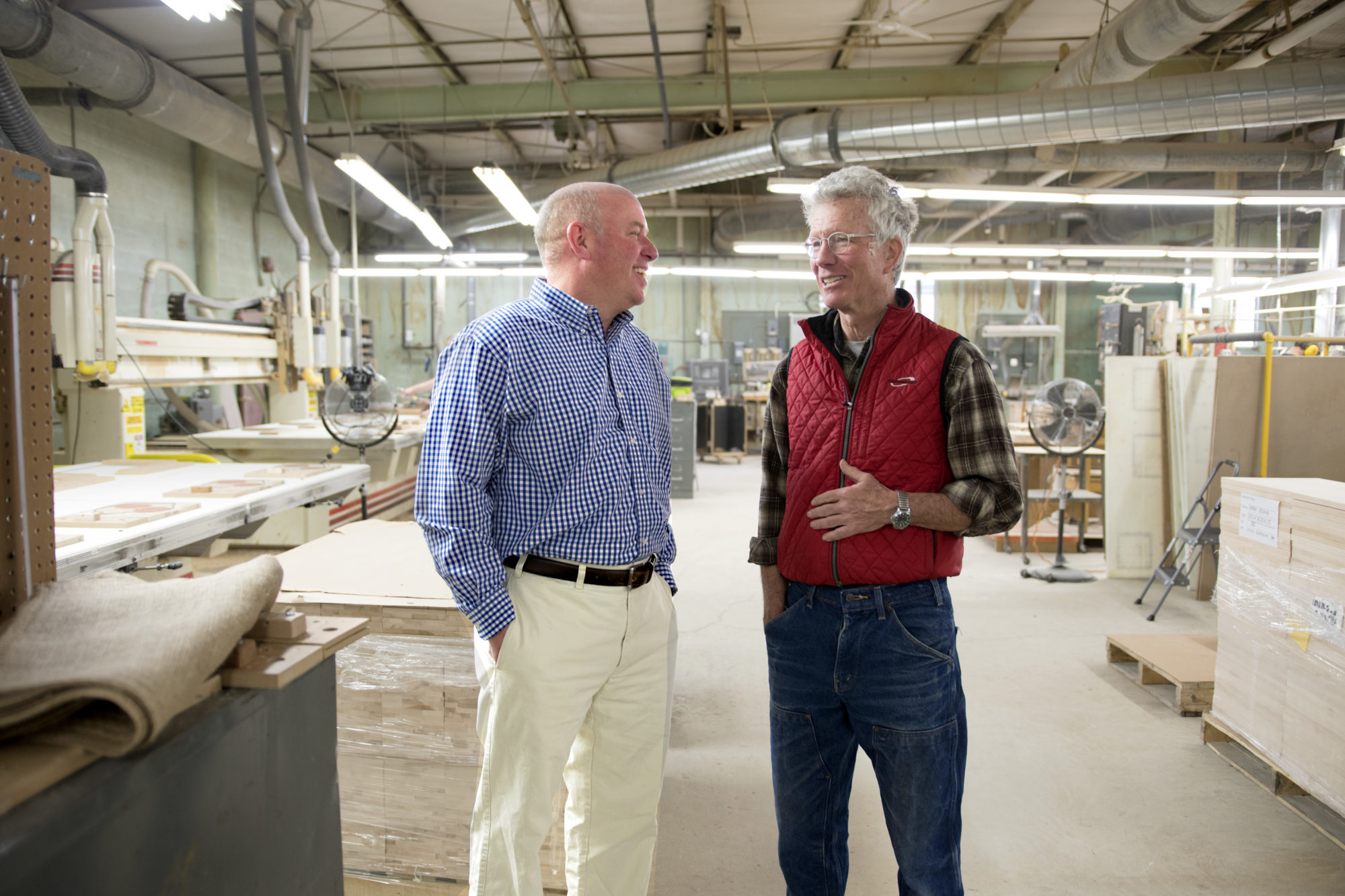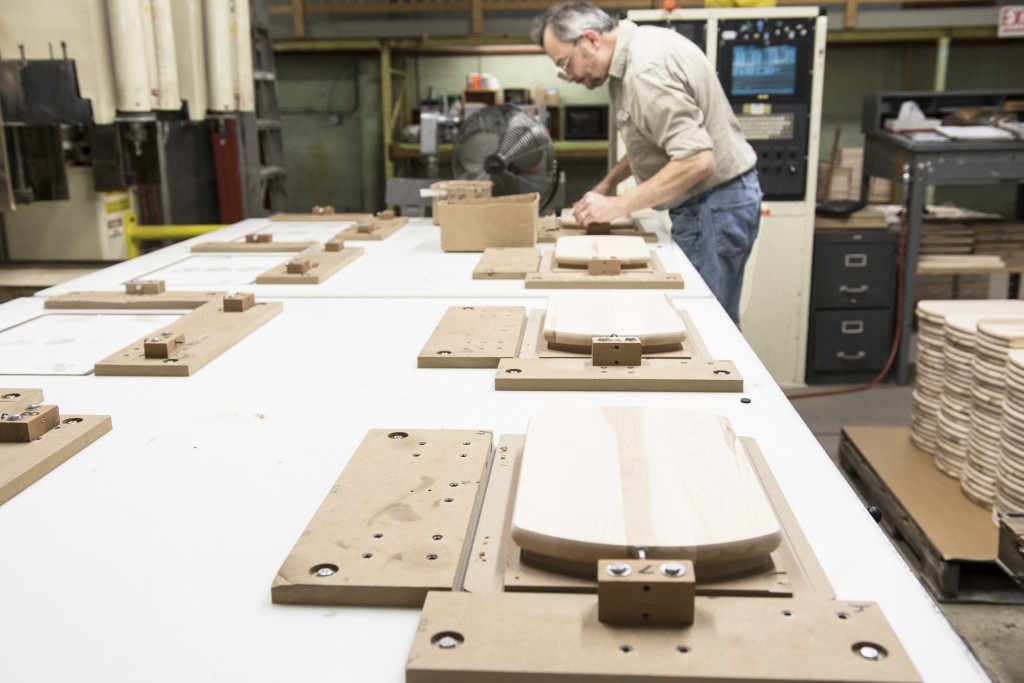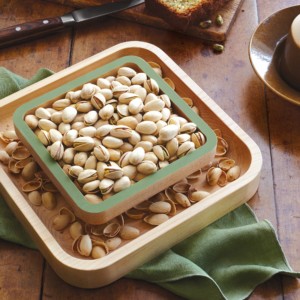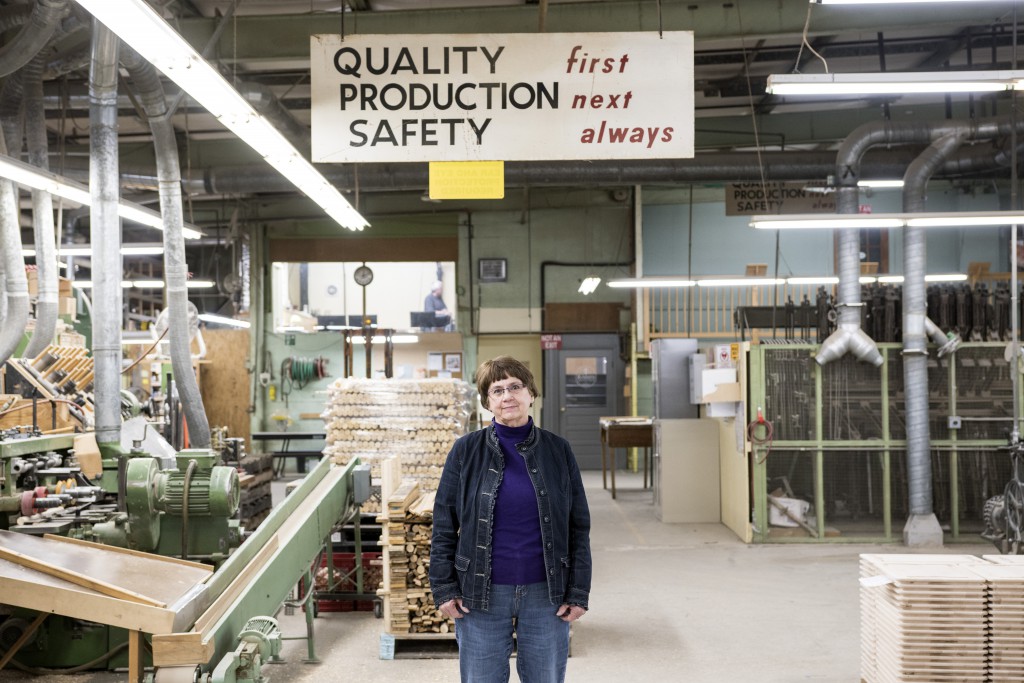J.K. Adams: Woodworking Design and Innovation for 74 Years … and Counting
April 27, 2018

By Christine McGowan, Forest Program Director, Vermont Sustainable Jobs Fund
If you ask Malcolm Cooper Jr. how long he has been involved with J.K. Adams, he’ll tell you 68 years, or since the day he was born. His father, an engineer by training, bought a half interest in the Dorset woodworking business in the fall of 1949. “I don’t recall us ever talking about sports or political news around the dinner table,” says Malcolm. “It was always about the business and how to drive the business forward.” In the early days, J.K. Adams turned out shoeshine boxes, drafting tables, and surveying equipment. Today, they focus on kitchen, gift and lifestyle products, such as cutting boards, wine racks, rolling pins, spice racks, and serving trays. “Dad always believed that if you built a better widget, the customers would find you.”
For a number of decades, Malcolm Sr. was right. In business for 74 years, J.K. Adams has a solid footing in the industry, with major national retail customers such as Crate + Barrel, Williams-Sonoma, and Uncommon Goods. But the company faces real challenges from manufacturers outside of the U.S. “They say imitation is the highest form of flattery,” observed Malcom, “But when our product designs are blatantly copied, manufactured in China, and sold for less to our existing customers, it’s a problem.”

Henry Croff measures wood before it’s loaded onto a Computer Numeric Controlled Router Operator at J.K. Adams in Dorset. VSJF|Erica Houskeeper
Innovation, quality and people
Realizing that their existing model of business might not be sustainable in an increasingly competitive global marketplace, Malcolm and his management team have been working on new models that will help them to stay relevant and profitable. “Our business has always been about innovation, quality and people,” he said. “That doesn’t change. But we have to be on the constant look out for that next new product, that next new customer. We are always looking at how people live and asking how we can enhance their lives.”

J.K. Adams Pistachio Pedestal, Photo credit: J.K. Adams | Uncommon Goods
Many kitchen items we take for granted were invented at J.K. Adams, including the angled knife storage rack cut at a 45 degree slant. Annoyed by that fact that he couldn’t pull out a knife from his new vertical knife block without bumping up against the cabinet above, Malcolm Sr. brought the knife holder out into the shop and cut an angled chunk off the bottom. “Within weeks of introducing this product, we had an order from J.A. Henckels knives,” recalls Malcolm. J.K. Adams also lays claim to the invention of the rotating spice rack, in-drawer knife storage, and the ubiquitous modular wine storage rack. More recently, they designed a pistachio pedestal, which is now sold by Uncommon Goods as the “elegant solution for storing discarded pistachio shells.”
Though their location in quaint Dorset, Vermont may be removed from the hustle of big business, J.K. Adams is deeply connected to a national pipeline of buyers, sales reps, and customers who they tap for ideas. “We ask everyone we talk to, what problems do you see? How can we solve them?” said Malcolm. He and his CEO, Jon Blatchford, surround themselves not only with young product designers, talented woodworkers, and a savvy marketing team, but also with people who love to cook, eat and entertain. “We cast a wide net,” he said.
Building on longevity
Though design innovation is clearly in the DNA at J.K. Adams, Malcolm holds firm to his father’s belief in quality as the bedrock of the business. Some of their products, like the Q-Tee Cutting Board, have been in production for more than 50 years, and the company backs up every item that leaves its woodshop with a lifetime guarantee. “Not even L.L. Bean does that anymore!” joked Malcolm.
“We can afford to take some risks,” he said, “because we have carefully and conservatively built this business over three-quarters of a century.” Case in point, the company name. Originally founded by Josiah Knowles Adams, Malcolm Jr. recalls asking his father why they didn’t change the name to “M.E. Cooper” to reflect their family name. Turns out, there wasn’t enough money left after purchasing the company to reprint stationery. “Even if new stationery had been in the budget, Dad would have considered it a waste not to use the perfectly good stationery that was already printed.”

Janice Corey has worked at J.K. Adams since October 1966. She started working on the factory floor and eventually moved to an administrative role. VSJF|Erica Houskeeper
He also points to the company’s commitment to Vermont and to the people who come to work every day as the foundation on which they can trial new ideas. “It’s important that we balance efficiency and innovation with loyalty to this community and our hardworking employees,” said Malcolm. “There are not many manufacturers left in New England. These people take pride in what they do. They like being able to hold something at the end of the day and say ‘I made this.’” One of the area’s largest employers, J.K. Adams currently has 43 employees, many of whom count their tenure in decades instead of years, including Janice Corey who has been with the company for 51 years. “It’s our connection to the local community, to our supply chain, and to our customers that keeps us in the game,” added Malcolm. “It’s our story that makes us relevant.”
Though the company continues to adapt with the times, at the end of the day Malcolm believes that wood will never go out of vogue. “Wood has been used for tools, shelter and accessories since the start of recorded human history,” he said. “It’s attractive, warm to the touch, and relatively easy to work with. People always come back to wood. Dad believed that if you build something that is functional and well made, people will buy it. We are going to hold onto that.”
Vermont Forest Industry Network
Vermont’s forest products industry generates an annual economic output of $1.5 billion and supports 10,000 jobs in forestry, logging, processing, specialty woodworking, construction and wood heating. The new Vermont Forest Industry Network creates the space for industry professionals from across the entire supply chain and trade association partners throughout the state to build stronger relationships and collaboration throughout the industry, including helping to promote new and existing markets for Vermont wood products, from high quality furniture to construction material to thermal biomass products such as chips and pellets. Learn more or join at www.vsjf.org.
Feature Photo: Malcolm Cooper, owner of J.K. Adam in Dorset, talks with company CEO Jon Blatchford. VSJF|Erica Houskeeper




